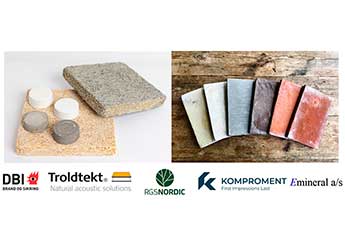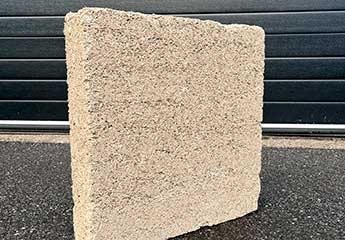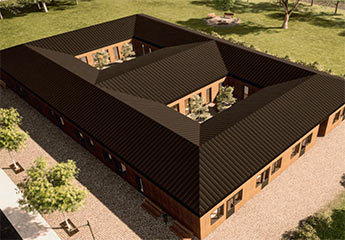DBI strategic research
Development of fire-safe, bio-based and circular construction productsDBI will strengthen the development of fire-safe, bio-based and circular construction products by reducing fire technical barriers with research, technological development, standardisation work and knowledge sharing. The various activities will make it easier and more efficient for manufacturers to develop fire-safe, sustainable and durable construction products.
Fire safety requirements and fire safety are a significant barrier for manufacturers of bio-based and circular construction products faced with the development, approval and market introduction of new products. Bio-based construction products are organic and non-homogeneous biological raw materials that are naturally flammable. Circular construction products for industry or homes contain recycled materials or recycled components whose properties are unknown.
DBI will make it easier to handle the fire technical considerations and requirements in product development, making it simpler, faster and cheaper to develop and introduce bio-based and circular construction products. This will be done by optimising the fire technical properties of bio-based and circular construction products, simplifying the system for fire technical documentation in order to pave the way to the international markets, and by initiating collaboration on fire consulting, product development and demonstration projects.
With new technological services, facilities and material data, DBI will make it possible to develop fire-safe, sustainable and durable products. In addition, DBI will demonstrate that fire safety requirements and technology need not be a hindrance to the spread of bio-based and circular products in Denmark or globally.


